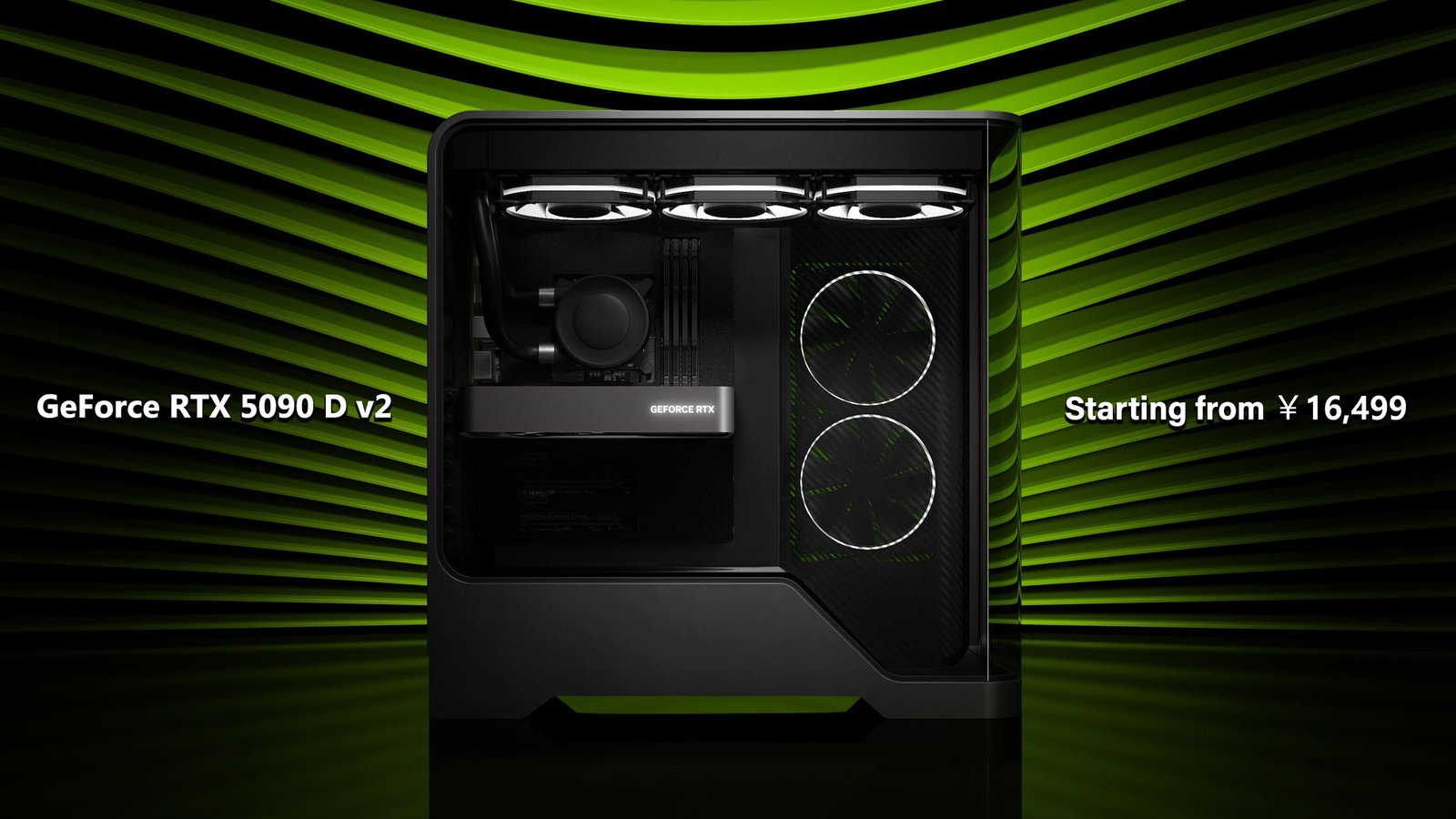NVIDIA officially launched the GeForce RTX 5090D V2, a new flagship graphics card tailored specifically for the Chinese market. This release marks the latest in NVIDIA’s efforts to navigate U.S. export restrictions while maintaining its presence in one of the world’s largest technology markets.
The RTX 5090 D V2 is built on NVIDIA’s Blackwell architecture, featuring the GB202-240 die with 21,760 CUDA cores, matching the core count of the RTX 5090 and RTX 5090 D. However, to adhere to U.S. export regulations, NVIDIA has scaled back the memory subsystem. The card now includes 24 GB of GDDR7 memory on a 384-bit bus, down from the 32 GB GDDR7 and 512-bit bus found in the RTX 5090 D and the global RTX 5090. This results in a memory bandwidth reduction from 1,792 GB/s to 1,344 GB/s, a 25% drop.
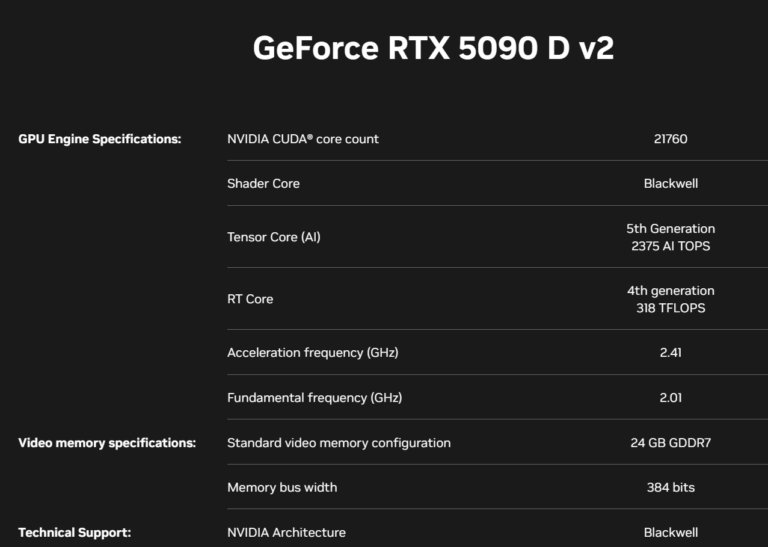
Despite the memory downgrade, the RTX 5090 D V2 maintains the same core clock speeds as its predecessors, with a base clock of 2.01 GHz and a boost clock of 2.41 GHz. The total graphics power (TGP) remains at 575W, with some custom AIB (add-in-board) models offering factory-overclocked variants pushing up to 600W. The card also supports NVIDIA’s latest technologies, including 4th Gen Ray Tracing Cores and 5th Gen Tensor Cores, though its AI performance is reduced to 2,375 AI TOPS compared to 3,352 AI TOPS on the full RTX 5090.
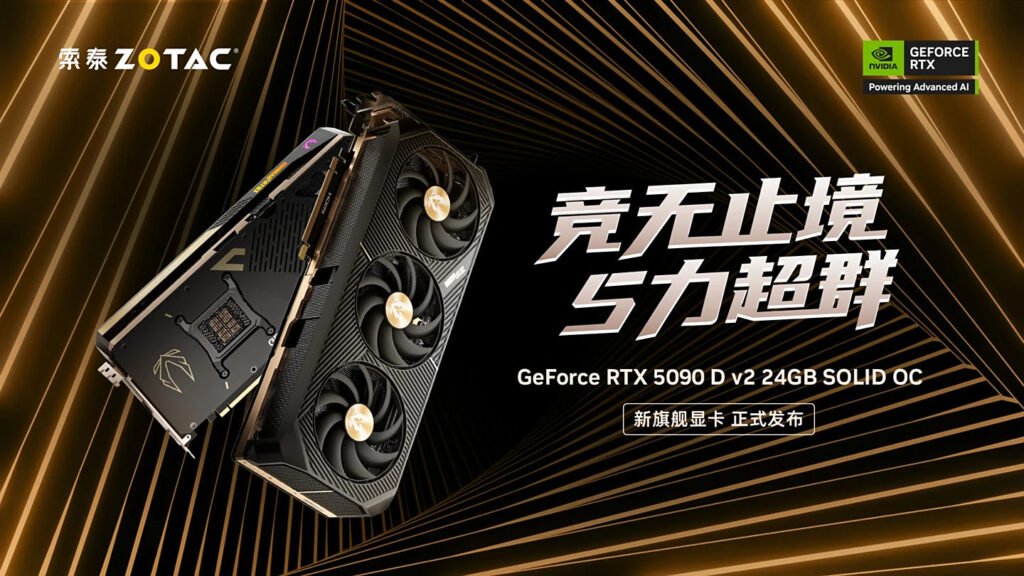
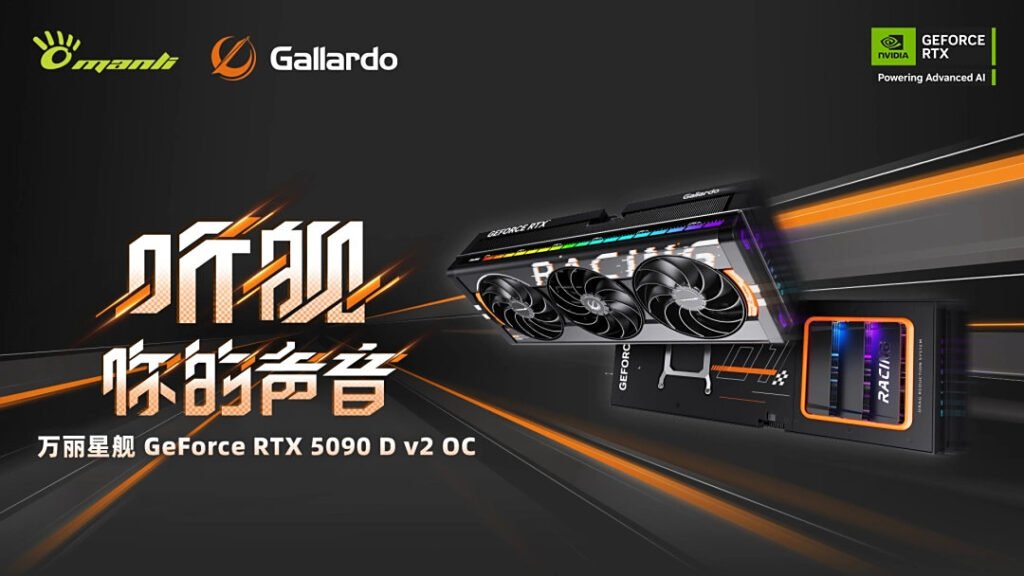
Source : ZOTAC/MANLI
Testing by EXPreview indicates that gaming performance is nearly identical to the RTX 5090 D, with only a 2% performance drop in benchmarks like 3DMark Time Spy Extreme and Fire Strike Ultra. In Black Myth: Wukong at 4K resolution with cinematic quality settings, the RTX 5090 D V2 achieved 57 FPS, compared to 47 FPS for the RTX 4090 and 38 FPS for the RTX 5080. However, the reduced memory capacity and bandwidth result in a more noticeable performance hit in AI and productivity workloads, with single-digit to low-double-digit percentage drops.
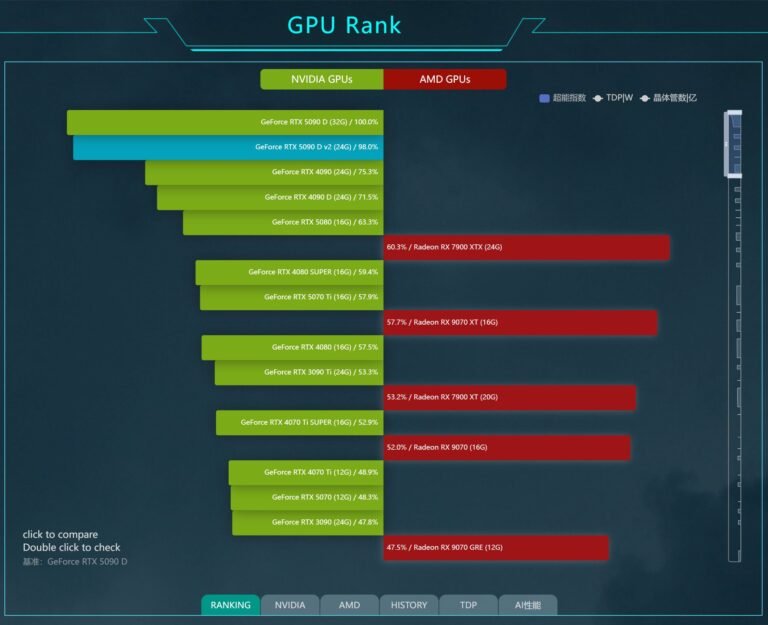
The RTX 5090D V2 carries the same MSRP as the original RTX 5090D at 16,499 RMB, a decision that has sparked criticism among Chinese consumers due to the reduced specifications. In practice, market dynamics and limited supply have driven prices higher, with retail listings from partners like Colorful starting at 20,699 RMB (around $2,880 USD) and reaching up to 24,999 RMB ($3,480 USD) for premium models.
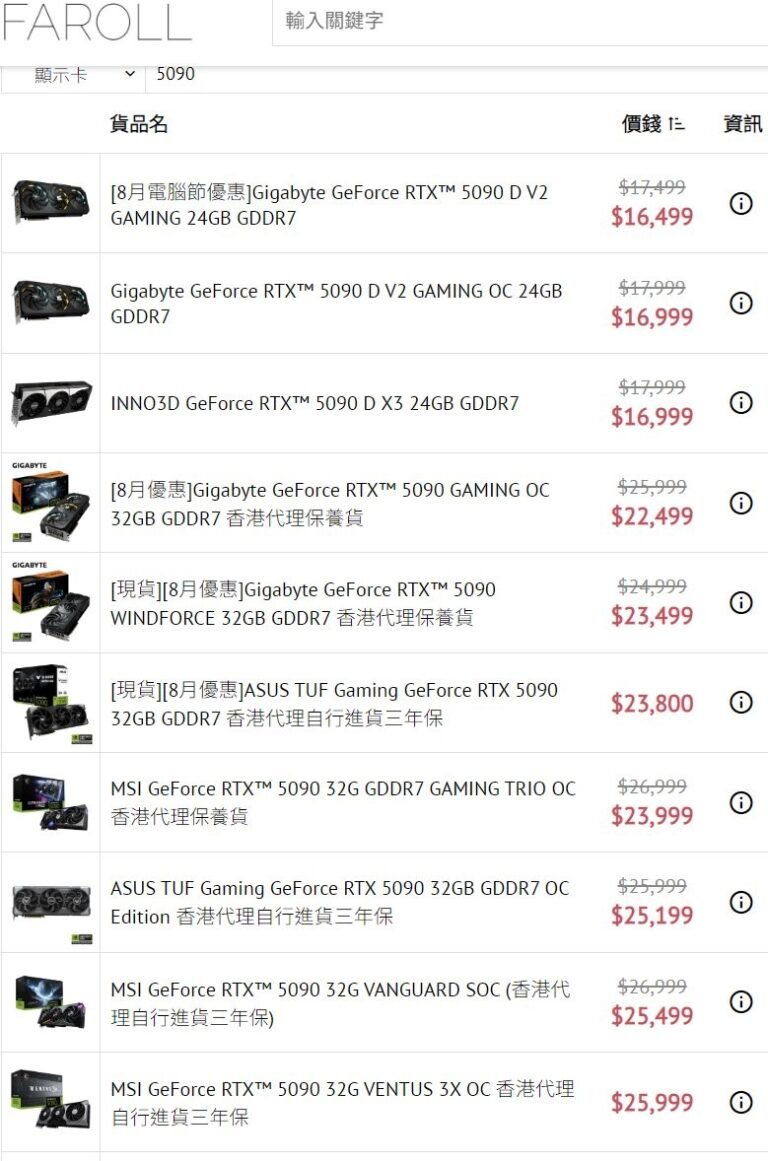
A Hong Kong retailer, Faroll (via @unikoshardware), listed the GPU with editions starting at HK$16,499, equivalent to approximately 15,108 Chinese Yuan. This makes it about US$200 cheaper than in mainland China. While the RTX 5090 isn’t banned in Hong Kong, its price is significantly higher than typical. In contrast, the RTX 5090 D V2 could be priced US$700–$1,400 lower than the standard RTX 5090.
| Name | RTX 5090 D V2 | RTX 5090 D | RTX 5090 |
|---|---|---|---|
| GPU | GB202-240 | GB202-250 | GB202-300 |
| CUDA Cores | 21760 | 21760 | 21760 |
| Memory | 24 GB GDDR7 | 32 GB GDDR7 | 32 GB GDDR7 |
| Memory Bus | 384-bit | 512-bit | 512-bit |
| Process Node | TSMC 4N | TSMC 4N | TSMC 4N |
| Bandwidth | 1.34 TB/s | 1.79 TB/s | 1.79 TB/s |
| TBP | 575W | 575W | 575W |
Source : NVIDIA

